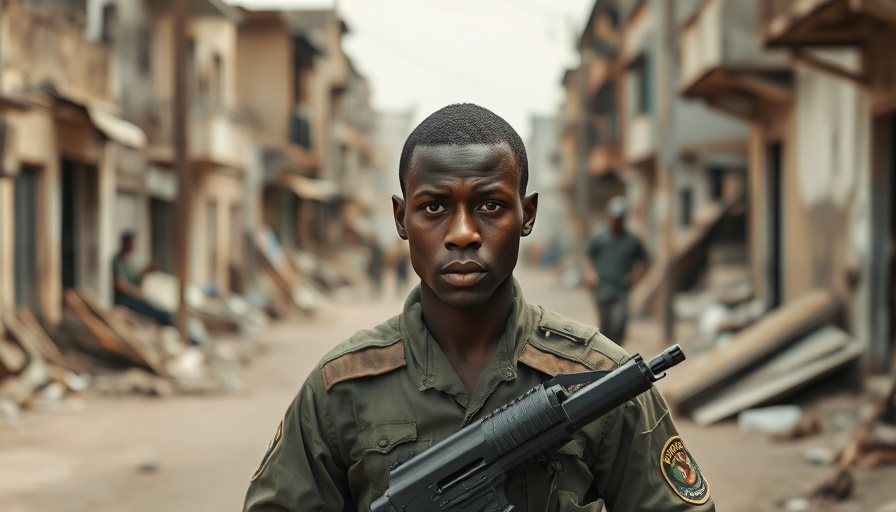
The Devastating Toll of Insurgent Violence in Northeast Nigeria
On a somber Monday, the northeastern region of Nigeria was rocked by a gruesome attack that resulted in the tragic deaths of at least 26 individuals, including women and children. This assault occurred on a busy roadway connecting the towns of Ran and Gambu in Borno State, where a vehicle struck a landmine, highlighting the persistent threat that insurgent groups pose to the region.
In 'Bomb Blast Kills 26 in Northeast Nigeria,' the discussion dives into the ongoing issue of insurgent violence in the region, prompting deeper analysis of its tragic human cost and broader implications.
Understanding the Context: ISWAP's Role in Regional Instability
The militant group known as the Islamic State West Africa Province (ISWAP), a breakaway faction of Boko Haram, has taken responsibility for this violent incident. ISWAP has become notorious for its ruthless tactics and has been central to the ongoing insurgency that has plagued Nigeria for over a decade. The group continues to wage a brutal campaign that has resulted in the deaths of tens of thousands and displaced millions, creating a humanitarian crisis that demands urgent global attention.
Addressing the Harrowing Human Cost
Most of the victims of this latest attack were local farmers and traders, individuals whose livelihoods depend on the very roads that insurgents have turned into battlegrounds. The lives lost in these senseless attacks underscore the vulnerability of communities that are already struggling under the weight of economic hardship and insecurity. In a region where agriculture is critical to survival, the targeting of civilians presents a dire threat to food security and economic stability.
Parallel Examples: Escalating Violence in West Africa
The situation in Nigeria is not isolated. Similar patterns of violence are evident across West Africa, particularly in regions where weak governance, poverty, and ethnic tensions create fertile ground for extremist ideologies. Neighboring countries such as Cameroon and Niger have also experienced spillover effects from Nigeria's insurgency, where local populations are often caught in the crossfire of escalating violence. The interconnected nature of regional conflicts is a warning sign that requires a unified and comprehensive response from both national governments and international partners.
The Role of Coastal Governments & International Intervention
It is crucial for governments in the region to bolster their security forces and collaborate with international entities to counteract the insurgency. However, systemic issues such as corruption and a lack of accountability often hinder effective governance. The international community has a pivotal role to play, namely through investment in local law enforcement, humanitarian support for affected communities, and strategic intelligence sharing aimed at dismantling the networks that facilitate insurgent operations. Active intervention must balance military approaches with long-term political solutions that address root causes of instability.
Future Predictions: A Complex Path to Peace
The road to peace in Northeast Nigeria is fraught with challenges. As insurgent groups adapt and evolve in their tactics, responses must become increasingly sophisticated and responsive to the local context. Experts predict that without a concerted effort to rebuild trust within local communities and address socioeconomic injustices, insurgency and violence may persist as unfortunate staples in the region's narrative.
Final Thoughts: Advocacy for Global Awareness and Action
This tragic incident should serve as a wake-up call for global communities to engage with and support ongoing efforts aimed at restoring peace and stability in Africa's troubled regions. By amplifying the voices of affected communities and demanding accountability from governments, there is hope that a more sustainable and peaceful future can be forged.
As we reflect on the ramifications of the bombing in Nigeria and the broader implications of ongoing insurgency, it’s essential to recognize our collective responsibility in driving discourse and action related to African crises. Engaging with these stories is not merely an academic exercise, but a moral imperative to foster a safer world.
 Add Row
Add Row  Add
Add 




Write A Comment